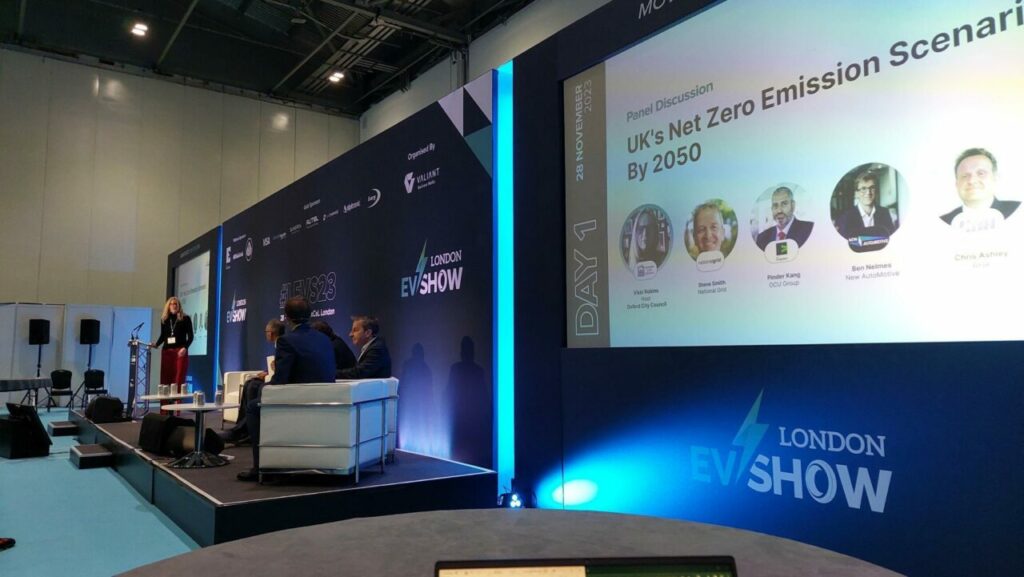With the Zero Emission Vehicle (ZEV) mandate agreed in parliament this week, an expert panel discussed how to address the remaining barriers to the EV transition on the first day of the London EV Show 2023.
“Now that we’ve unlocked the supply of EVs through the ZEV mandate, a lot of the questions will be around addressing the other barriers that hold the [EV transition] back,” Ben Nelmes, chief executive at New AutoMotive told the London EV Show this morning (28 November).
Nelmes identified a number of challenges faced by the EV industry in the UK, outside of supply, which include consumer preferences, whether drivers will want to buy the growing number of EVs in the second-hand market; and questions around infrastructure provision.
A ‘massive step-change’ for the industry
Members of the ‘UK Net Zero Emission scenario by 2050’ panel identified a number of switches in industry mentality that could help navigate the barriers outlined by Nelmes.
There are currently big changes underway in how the National Grid is regulated, noted Steve Smith, group head of strategy, innovation and market analytics at the National Grid.
Historically the grid operator would be encouraged to build ‘just in time’ which led to situations where networks were declining or almost flatlining due to energy inefficiency.
“And sadly, the lead times to build new distribution capacity is typically two to four years, but for transmission it’s north of 13 years – although there are big initiatives to half that,” added Smith.
In order to remedy this, Smith said National Grid must adopt the mindset of a “massive step-change” in capacity requirements and begin to build ahead of need.
“Rather than waiting for the demand to turn up, we [the National Grid] are going to have to start taking some risk and build before we see the certainty of where people are coming onto the network,” said Smith, noting that the Autumn Statement’s measure to accelerate grid infrastructure build times will be extremely helpful in this.
Speaking from the perspective of heavy-duty vehicles, head of policy – environment and regulation at the Road Haulage Association, Chris Ashley, cautioned against delays caused by waiting for a perfect answer.
For example, Ashley identified an ‘interim’ step in the decarbonisation of trucks – low carbon fuels such as hydrotreated vegetable oil (HVO), which can deliver a reduction in carbon equivalent emissions of up to 90%.
“For us it makes sense to have [the use of low carbon fuels] implemented as a policy mechanism, so that all operators can start decarbonising now,” said Ashley, before adding:
“Surely saving a tonne of carbon now is better than waiting for a perfect solution to come along which may take some time.”






